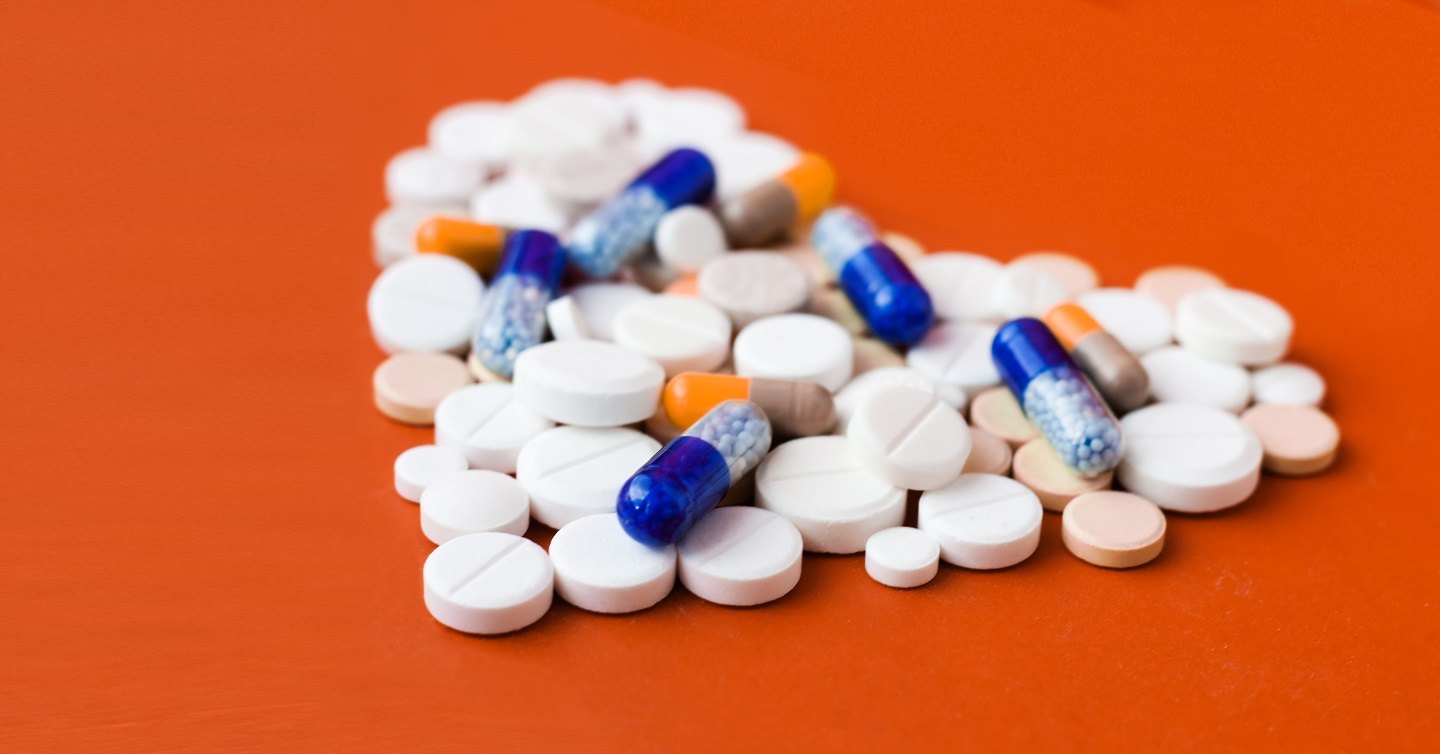Heart Medications are Common, but So Are Their Myths

The Truth About Common Heart Medicines
By Hue Xiong, Doctor of Pharmacy candidate 2022 at the Medical College of Wisconsin
2/21/2022
In the United States, the most common cause of death for men and women is heart disease. More than 600,000 Americans die of heart disease each year.1
What is heart disease?
The term “heart disease” can refer to several types of heart conditions. The most common type is coronary artery disease, where the artery that provides the heart blood is clogged. Other types of heart disease include the valves in the heart, or the heart not being able to pump well, leading to heart failure.2
Americans who have recently been diagnosed with new heart disease often start on multiple medications. Patients may be hesitant about starting new therapy or may think therapy is unnecessary due to common misconceptions. Let’s look at some of the more common misconceptions around heart medications and the truth behind them.
Statins cause muscle pain.
Used to treat high cholesterol, diabetes and heart disease, statins are an important medication group that helps to open up arteries from sticky, obstructing cholesterol. Over time, cholesterol build-up can narrow arteries by sticking to the walls. Cholesterol can even block the arteries entirely, leading to severe events like a heart attack.
Statins not only help reduce cholesterol but also stabilize the lining of blood vessels, help relax the blood vessel and make plaque less likely to rupture, lowering the risk of both heart attack and stroke.
Are there side effects to using statins? Yes – a potential side effect of statins includes muscle pain, studies show less than five percent of people using a statin develop muscle pain.
For those who develop muscle pain, however, changing to a different statin medication, lowering statin dose or changing the frequency (for example, taking the medication three times a week instead of daily) can reduce muscle pain. Altering the regimen can be very successful. In studies, more than 70 percent of statin users who experienced muscle symptoms did not have the same issue with a different statin or a different dose.3
Blood pressure-lowering medications cause fatigue.
Blood pressure-lowering medications are commonly used in heart disease to allow the heart to work more efficiently. Commonly prescribed blood pressure medication classes are Angiotensin-Converting Enzymes (ACE) Inhibitors, such as lisinopril, Angiotensin II Receptor Blockers (ARBs), such as losartan or beta-blockers such as metoprolol and atenolol.
Based on the 2021 Heart Failure Guideline from the American College of Cardiology, beta-blockers (carvedilol, bisoprolol, metoprolol succinate) help reduce the negative health impacts and death from heart failure in those who have a decrease in heart pump function. 4
Those on blood pressure medication may feel tired or fatigued. However, patients should consult their personal doctor before changing or discontinuing these vital medications. Sometimes, other issues, like low iron, depression, sleep apnea or low thyroid may be behind the fatigue, rather than the blood pressure medication.
Your personal doctor may also suggest medication adjustments like changing to take the medication at bedtime. Discuss medication adjustments with your primary care provider first to avoid negative consequences.
Angioplasty and stenting or bypass surgery “fix” your heart without taking additional medications.
Three procedures are commonly used to treat heart disease.
Angioplasty helps restore blood flow to the heart muscle without open-heart surgery by opening blocked coronary arteries.
A stent is a tiny tube that is used to help keep a blocked passageway open.
Coronary artery bypass graft surgery is a procedure where a surgeon takes a healthy piece of vein from the leg or artery from the chest to go around or bypass the blocked heart artery.
These procedures can help alleviate pain and improve quality of life. Without taking proper medications such as a blood thinner or cholesterol-lowering medication, however, the fixed arteries can get reclogged with plaque leading to chest pain or worse - a heart attack or stroke.
In a study called PREVENT IV trial, patients taking 50 percent or less indicated medication compared to those taking all indicated medications after a coronary bypass surgery had a significantly higher two-year rate of death from a heart attack.5 Regardless of procedures, it is important to continue lifestyle modifications and uses of medication as directed by your personal doctor.
Take aspirin daily to help prevent heart disease in those who do not have any heart disease.
For decades, aspirin once daily has been widely used to help prevent heart disease.
At a lower aspirin dose, it can inhibit clotting cells causing a decrease in clot formation. A higher dose of aspirin may help reduce pain and fever.
The role of aspirin is well established for patients with heart disease and among those that have undergone a heart procedure. Recent studies, however, suggest that patients with no history of heart disease (primary prevention) may not be benefiting from using aspirin daily.
A study including 118,445 healthy adults, randomly given either aspirin or placebo, found no difference in the risk of heart death or stroke. 6 In addition, the 2019 American College of Cardiology and the American Heart Association guideline on the primary prevention of heart disease, mention aspirin should not be used in the routine primary prevention of heart disease due to lack of net benefits.7 Aspirin should also not be used for patients who are at a higher risk of bleeding. Decisions about starting aspirin as primary prevention should be based on shared decision-making between you and your personal doctor.
Lifestyle modifications
Having a healthy lifestyle in addition to medications can help reduce the risk factors for future heart disease in those with a heart condition.
A variety of tactics to help avoid heart disease or reduce its risk of severity include eating a healthy diet, increasing physical activity daily and quitting smoking to improve personal health.
By adhering to the medications prescribed by your personal doctor or care team, you can help reduce the risk of future hospital stays or even death. Remember also to mention any side effects to your personal doctor as there are usually alternatives that may work better for you without the side effects.
For more information on heart disease or medication, contact Network Health today.
- Centers for Disease Control and Prevention: Heart Disease. https://www.cdc.gov/heartdisease/facts.htm. Updated Sept 27, 2021. Accessed January 6, 2022.
- Heart.org. Type of Heart Medications. https://www.heart.org/en/health-topics/heart-attack/treatment-of-a-heart-attack/cardiac-medications. Updated January 15, 2020. Accessed January 6, 2022
- Casebeer L, Huber C, Bennett N, et al. Improving the physician-patient cardiovascular risk dialogue to improve statin adherence. BMC Fam Pract. 2009;10:48. Published 2009 Jun 30. doi:10.1186/1471-2296-10-48
- Yancy CW, Jessup M, et al. 2013 ACCF/AHA guideline for the management of heart failure: a report of the American College of Cardiology Foundation/American Heart Association Task Force on practice guidelines. Circulation. 2013;128(16):e240-e327. doi:10.1161/CIR.0b013e31829e8776
- Goyal A, Alexander JH, Hafley GE, et al. Outcomes associated with the use of secondary prevention medications after coronary artery bypass graft surgery. Ann Thorac Surg. 2007;83(3):993-1001. doi:10.1016/j.athoracsur.2006.10.046
- Spencer Fredrick, Guyatt Gordon, Tampi Malavika, Golemic Breanne. Aspirin in the primary prevention of cardiovascular disease. In: Post TW, ed. UpToDate. Waltham, MA: UpToDate; Updated December 2021. Accessed January 6, 2022.
- Arnett DK, Blumenthal RS, Albert MA, et al. 2019 ACC/AHA Guideline on the Primary Prevention of Cardiovascular Disease: A Report of the American College of Cardiology/American Heart Association Task Force on Clinical Practice Guidelines [published correction appears in Circulation. 2019 Sep 10;140(11):e649-e650] [published correction appears in Circulation. 2020 Jan 28;141(4):e60] [published correction appears in Circulation. 2020 Apr 21;141(16):e774]. Circulation. 2019;140(11):e596-e646. doi:10.1161/CIR.0000000000000678



